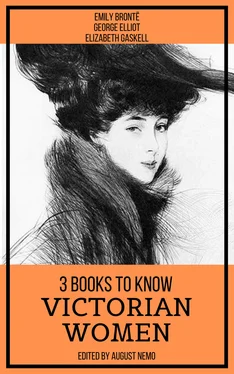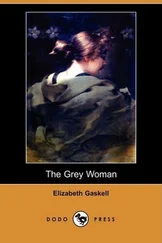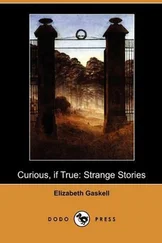––––––––

This was Mr. Casaubon's letter.
––––––––

MY DEAR MISS BROOKE,—I have your guardian's permission to address you on a subject than which I have none more at heart. I am not, I trust, mistaken in the recognition of some deeper correspondence than that of date in the fact that a consciousness of need in my own life had arisen contemporaneously with the possibility of my becoming acquainted with you. For in the first hour of meeting you, I had an impression of your eminent and perhaps exclusive fitness to supply that need (connected, I may say, with such activity of the affections as even the preoccupations of a work too special to be abdicated could not uninterruptedly dissimulate); and each succeeding opportunity for observation has given the impression an added depth by convincing me more emphatically of that fitness which I had preconceived, and thus evoking more decisively those affections to which I have but now referred. Our conversations have, I think, made sufficiently clear to you the tenor of my life and purposes: a tenor unsuited, I am aware, to the commoner order of minds. But I have discerned in you an elevation of thought and a capability of devotedness, which I had hitherto not conceived to be compatible either with the early bloom of youth or with those graces of sex that may be said at once to win and to confer distinction when combined, as they notably are in you, with the mental qualities above indicated. It was, I confess, beyond my hope to meet with this rare combination of elements both solid and attractive, adapted to supply aid in graver labors and to cast a charm over vacant hours; and but for the event of my introduction to you (which, let me again say, I trust not to be superficially coincident with foreshadowing needs, but providentially related thereto as stages towards the completion of a life's plan), I should presumably have gone on to the last without any attempt to lighten my solitariness by a matrimonial union.
Such, my dear Miss Brooke, is the accurate statement of my feelings; and I rely on your kind indulgence in venturing now to ask you how far your own are of a nature to confirm my happy presentiment. To be accepted by you as your husband and the earthly guardian of your welfare, I should regard as the highest of providential gifts. In return I can at least offer you an affection hitherto unwasted, and the faithful consecration of a life which, however short in the sequel, has no backward pages whereon, if you choose to turn them, you will find records such as might justly cause you either bitterness or shame. I await the expression of your sentiments with an anxiety which it would be the part of wisdom (were it possible) to divert by a more arduous labor than usual. But in this order of experience I am still young, and in looking forward to an unfavorable possibility I cannot but feel that resignation to solitude will be more difficult after the temporary illumination of hope.
In any case, I shall remain,
Yours with sincere devotion,
EDWARD CASAUBON.
––––––––
Dorothea trembled while she read this letter; then she fell on her knees, buried her face, and sobbed. She could not pray: under the rush of solemn emotion in which thoughts became vague and images floated uncertainly, she could but cast herself, with a childlike sense of reclining, in the lap of a divine consciousness which sustained her own. She remained in that attitude till it was time to dress for dinner.
How could it occur to her to examine the letter, to look at it critically as a profession of love? Her whole soul was possessed by the fact that a fuller life was opening before her: she was a neophyte about to enter on a higher grade of initiation. She was going to have room for the energies which stirred uneasily under the dimness and pressure of her own ignorance and the petty peremptoriness of the world's habits.
Now she would be able to devote herself to large yet definite duties; now she would be allowed to live continually in the light of a mind that she could reverence. This hope was not unmixed with the glow of proud delight—the joyous maiden surprise that she was chosen by the man whom her admiration had chosen. All Dorothea's passion was transfused through a mind struggling towards an ideal life; the radiance of her transfigured girlhood fell on the first object that came within its level. The impetus with which inclination became resolution was heightened by those little events of the day which had roused her discontent with the actual conditions of her life.
After dinner, when Celia was playing an "air, with variations," a small kind of tinkling which symbolized the aesthetic part of the young ladies' education, Dorothea went up to her room to answer Mr. Casaubon's letter. Why should she defer the answer? She wrote it over three times, not because she wished to change the wording, but because her hand was unusually uncertain, and she could not bear that Mr. Casaubon should think her handwriting bad and illegible. She piqued herself on writing a hand in which each letter was distinguishable without any large range of conjecture, and she meant to make much use of this accomplishment, to save Mr. Casaubon's eyes. Three times she wrote.
MY DEAR MR. CASAUBON,—I am very grateful to you for loving me, and thinking me worthy to be your wife. I can look forward to no better happiness than that which would be one with yours. If I said more, it would only be the same thing written out at greater length, for I cannot now dwell on any other thought than that I may be through life
Yours devotedly,
DOROTHEA BROOKE.
––––––––
Later in the evening she followed her uncle into the library to give him the letter, that he might send it in the morning. He was surprised, but his surprise only issued in a few moments' silence, during which he pushed about various objects on his writing-table, and finally stood with his back to the fire, his glasses on his nose, looking at the address of Dorothea's letter.
"Have you thought enough about this, my dear?" he said at last.
"There was no need to think long, uncle. I know of nothing to make me vacillate. If I changed my mind, it must be because of something important and entirely new to me."
"Ah!—then you have accepted him? Then Chettam has no chance? Has Chettam offended you—offended you, you know? What is it you don't like in Chettam?"
"There is nothing that I like in him," said Dorothea, rather impetuously.
Mr. Brooke threw his head and shoulders backward as if some one had thrown a light missile at him. Dorothea immediately felt some self-rebuke, and said—
"I mean in the light of a husband. He is very kind, I think—really very good about the cottages. A well-meaning man."
"But you must have a scholar, and that sort of thing? Well, it lies a little in our family. I had it myself—that love of knowledge, and going into everything—a little too much—it took me too far; though that sort of thing doesn't often run in the female-line; or it runs underground like the rivers in Greece, you know—it comes out in the sons. Clever sons, clever mothers. I went a good deal into that, at one time. However, my dear, I have always said that people should do as they like in these things, up to a certain point. I couldn't, as your guardian, have consented to a bad match. But Casaubon stands well: his position is good. I am afraid Chettam will be hurt, though, and Mrs. Cadwallader will blame me."
That evening, of course, Celia knew nothing of what had happened. She attributed Dorothea's abstracted manner, and the evidence of further crying since they had got home, to the temper she had been in about Sir James Chettam and the buildings, and was careful not to give further offence: having once said what she wanted to say, Celia had no disposition to recur to disagreeable subjects. It had been her nature when a child never to quarrel with any one—only to observe with wonder that they quarrelled with her, and looked like turkey-cocks; whereupon she was ready to play at cat's cradle with them whenever they recovered themselves. And as to Dorothea, it had always been her way to find something wrong in her sister's words, though Celia inwardly protested that she always said just how things were, and nothing else: she never did and never could put words together out of her own head. But the best of Dodo was, that she did not keep angry for long together. Now, though they had hardly spoken to each other all the evening, yet when Celia put by her work, intending to go to bed, a proceeding in which she was always much the earlier, Dorothea, who was seated on a low stool, unable to occupy herself except in meditation, said, with the musical intonation which in moments of deep but quiet feeling made her speech like a fine bit of recitative—
Читать дальше













